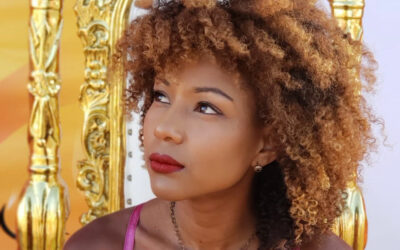In an industry where misogyny thrives, it’s not difficult to imagine the hardships faced by women in music. It is crucial, though, to focus on why women in music are so important. This article seeks to draw attention to the problems faced by so many women in the UK music scene, while also focusing on what can be done to address these issues.
Introduction
With unequal representation and challenges faced at every corner, the music industry is one of the many fields that has misogyny ingrained in its core. While the cause has yet to be determined, the issue itself is rarely talked about outside of the music industry. With some of the current biggest artists in the world being women such as Taylor Swift, Olivia Rodrigo and Ariana Grande, it could lead some to question whether women truly are treated differently.
While it’s clear that those artists mentioned are at the top of the chain, they are by no means an exception to the prejudice and biases faced by their peers. A recent report into the rampant misogyny within UK music spaces found that the prejudices were found in all aspects of music culture. From production, sound engineering, musical acts, promotion and fans, the report by the Women and Equalities Committee came to the conclusion that action needs to be taken immediately.
Where it starts
It’s no surprise that misogyny is an aspect of UK life. While the issue as a whole is sparking a discussion more recently, the conversation has not yet moved into the effect the prejudices play on girls in male dominated areas. A report into sexism and inequality in sport was presented to the government in March, with the response overdue and still not received. This leads to the question: if the government is refusing to take this issue seriously, how will anything change?
The case of sexism and misogyny has clearly permeated into the world of music, starting from the earliest level. Within music education, instruments are found to be gendered; women who prefer to play masculine instruments tend to be held to a higher standard than their male counterparts. Not only instruments are being perceived as belonging to just one gender: entire genres of music are perceived as almost entirely exclusive to men.

Izabel Lavin, the singer in Liverpool based metal band ‘Rozemary’, said: “initially I was just drawn to metal due to my music taste at the time and personal aesthetic, I looked up to a lot of female artists and they made it feel very doable, I guess. I definitely knew it was a very male dominated genre, I was very scared that people wouldn’t like us, or our band wouldn’t be perceived as ‘heavy enough’ simply because of my gender.”
The act of breaking into the music scene is intimidating enough, to do it in such a male heavy setting is something that women in alternative genres usually have to face alone. Izabel explains that there were certain things that helped her feel assured in her right to be involved in metal.
“I did always try to favour listening to non-male fronted bands to feel more confident in my own ability”.
Impact on artists
The government commented on the “culture of silence” that persists in the music scene, stating that women are not heard enough in their struggle and when they are it is usually ignored or downplayed. This is a culture in which women are free to be sexually harassed, discriminated against and face little support both in general and when dealing with these issues.
It seems that women in music exist in two contradictory categories: they are either completely dismissed or are held to a higher standard than their male counterparts.
Izabel commented: “I definitely feel women are held to a higher standard. Female artists, especially in the pop industry, have to create a specific image rather than their music simply standing out. It feels female artists have to sing, dance, dress well, be stereotypically attractive and have a good personality all while standing out and being unique.” While men may be allowed to simply stand on stage with a guitar, women are subjected to criticism if they don’t put on a show.
On a wider scale
One of the most noted instances where misogyny in music can be seen is through festival line ups. Although recently more artists and bands have spoken out about this and refused to play festivals with less than a 50/50 approach towards headliners, even some of the country’s largest festivals are at fault.
In 2023, 1 in 10 festival headliners were women or female fronted bands. At Glastonbury the same year all headliners were male, with Lana Del Rey playing “the other stage” despite her international prominence and Lizzo playing the Saturday slot before the headliner. This could, however, be explained as a result of previous exclusion of women in music and not a contributor.
Co-organiser of Glastonbury, Emily Eavis suggested that she tries as hard as she can but is unable to book female headliners without the cooperation of record companies, radio and fans themselves.
Izabel touched on the fact that women “have to be viewed as perfect”, which lends itself to the idea that female artists are constantly oversexualised. Often having to possess “sex appeal” in order to engage male fans, women are once again shown not to be in the same league as their male counterparts as the focus is pushed onto their body over the substance of their work.
There is hope
While we may not experience a societal paradigm shift very soon, it is hoped that with teaching on the matter being taught in music education and the general issue of misogyny being addressed society-wide, the gap between male and female artists will be able to be closed. The government’s response to the issue has introduced some recommendations that may remedy the issue within the music industry.
Musical education should offer increased funding to women and girls, they also aim to increase funding for schemes that seek to find diverse talent and promote it. Women in music do often face disadvantages, but it should not discourage any woman from pursuing music. Izabel reflected that there are positives to being involved in music: “there’s broader audience appeal and female artists can act as a role model for younger fans.
The community and networking opportunities are prominent due to a lot of other female artists wanting to connect and network with each other to build stronger communities.
There’s also a vast array of female artists in metal and alternative scenes that are shining examples of women prospering within music with Izabel giving some that she herself looks up to: “There’s so many such as Amy Lee, Courtney LePlant, Amy Walpole, Emma Boster, Debbie Gough, poppy, Courtney Jade (love rarely), Nova Twins and Hayley Williams.”
Article Credits: Erin Morris
Edited by: Mia Rose




